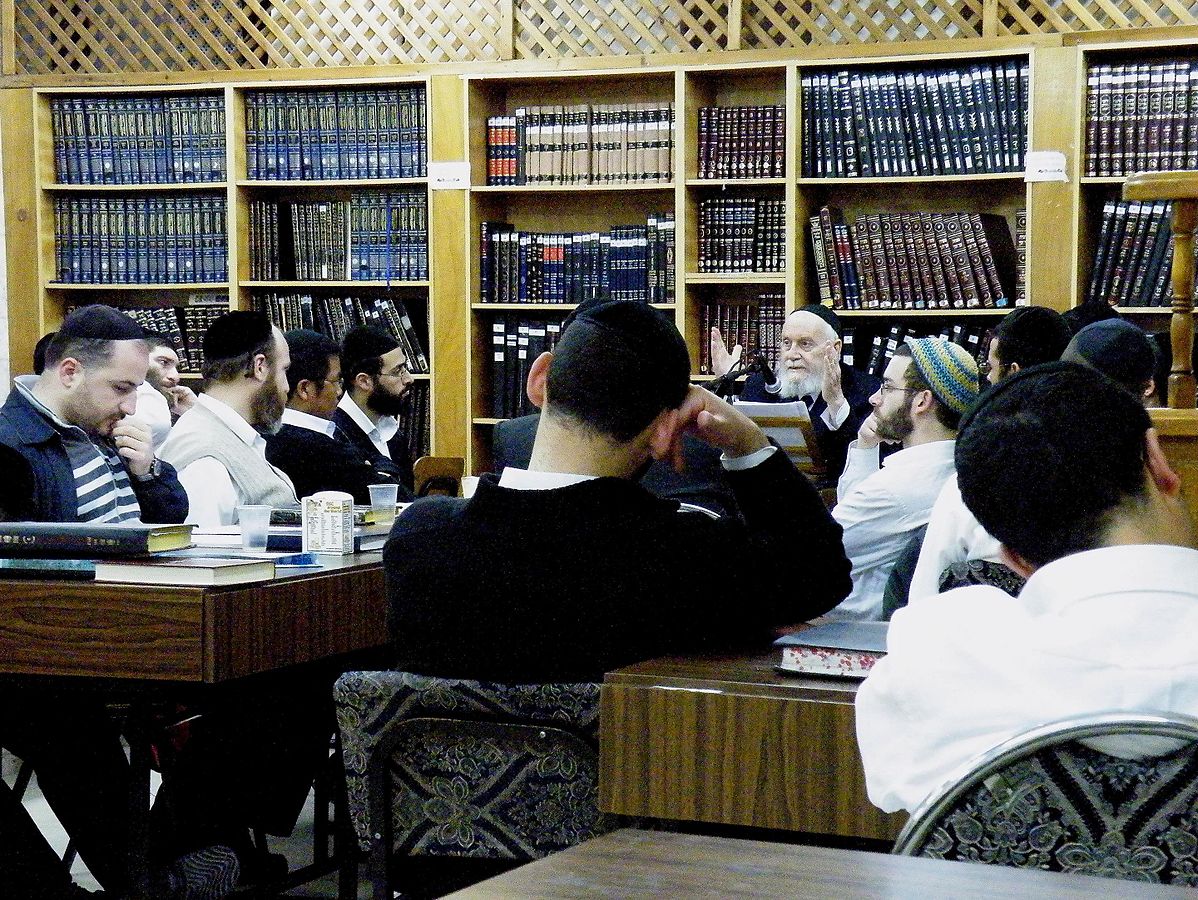by Lois Tverberg
 Understanding the extended meanings of Hebrew words often corrects our misunderstandings of the Bible and explains things that seem to not make sense. Sometimes they can even change our attitude toward God! This is what happens when we understand the broader meaning of the word “fear,” yirah, in Hebrew, and especially in the context of the “Fear of God,” a common expression throughout the Bible.
Understanding the extended meanings of Hebrew words often corrects our misunderstandings of the Bible and explains things that seem to not make sense. Sometimes they can even change our attitude toward God! This is what happens when we understand the broader meaning of the word “fear,” yirah, in Hebrew, and especially in the context of the “Fear of God,” a common expression throughout the Bible.
The idea that we should “fear the Lord” is found hundreds of times in the Old Testament. To many people this is a source of anxiety, and may make us not want to read about the God who appeared to require fright and dread among his people.
It may surprise people to know that even in the New Testament, the “fear of God” is often found. The Gentiles who worship the God of the Jews are called “God-fearers” and the early church was said to be built up in the “fear of the Lord” (Acts 9:31). Paul even speaks of the “fear of Christ” in Ephesians 5:21.
This is because the “fear of the LORD” was an extremely rich idea that goes far beyond our literal understanding, and is wonderfully positive in application. By understanding the Hebrew meaning of “fear,” and the rich Jewish thinking about the “Fear of the Lord,” we can shed great new light on this issue.
The key to understanding the Hebraic idea of “fear” is to know that like many Hebrew words, it has a much broader sense of meaning than we have in English. To us, “fear” is always negative: it is the opposite of trust, with synonyms of fright, dread and terror.
In Hebrew, it encompasses a wide range of meanings from negative (dread, terror) to positive (worship, reverence) and from mild (respect) to strong (awe). In fact, every time we read “revere” or “reverence,” it comes from the Hebrew word yirah, literally, to fear. When fear is in reference to God, it can be either negative or positive. The enemies of God are terrified by him, but those who know him revere and worship Him, all meanings of the word yirah.
How Should We “Fear the Lord”?
 Many Christians understand “the Fear of the LORD” as the fear of the punishment that God could give us for our deeds. It is true that everyone should realize that they will stand at the judgment after they die, but a Christian who knows his sins have been forgiven should not have this kind of fear of God anymore: although many still do.
Many Christians understand “the Fear of the LORD” as the fear of the punishment that God could give us for our deeds. It is true that everyone should realize that they will stand at the judgment after they die, but a Christian who knows his sins have been forgiven should not have this kind of fear of God anymore: although many still do.
People who have been steeped in this kind of “punishment mindset” have a very hard time loving God. This is what John speaks against when he says, “There is no fear in love; but perfect love casts out fear, because fear involves punishment, and the one who fears is not perfected in love.” (1 John 4:18).
Interestingly, in rabbinic thought, fearing God’s punishment is also understood to be an incomplete and inferior understanding of the term Yirat Adonai, “Fear of the Lord.”1 At its core is self-centeredness: what will happen to me because of God’s knowledge of my deeds?
Knowing the broader implications of the word “fear” in Hebrew, the rabbis came to a different conclusion, that the best understanding of the term Yirat Adonai is of having awe and reverence for God that motivates us to do His will.
This helps many passages make sense and show why the “Fear of the Lord” is so highly praised in the Bible:
The fear of the LORD is the beginning of wisdom, and knowledge of the Holy One is understanding. (Prov. 9:10)
In the fear of the LORD there is strong confidence, and his children will have refuge. The fear of the LORD is a fountain of life, that one may avoid the snares of death. (Prov. 14:26-27)
The “fear of the Lord” in these passages is a reverence for God that allows us to grow in intimate knowledge of Him. It teaches us how to live, and reassures us of God’s power and guidance. It gives us a reverence of God’s will that keeps us from getting caught in sins that will destroy our relationships and lives.
A Sense of God’s Presence
One aspect of Yirat Adonai that the Jewish people have focused on is the idea that we should be constantly aware of the presence of God. Over the top of Torah closets in many synagogues is the phrase “Know Before Whom You Stand,” reminding the congregation that an infinitely powerful God is close at hand.
People sometimes tell stories of how on the death bed of a family member, they had a strong sense of the presence of God, and have felt great reassurance from it, bringing a sense of awe for him at that time. Or in worship, there is no greater thrill than to feel spine-tingling awe at the grandeur of God.
 In this sense, to “fear” God is to be filled with awe, and it is one of the most profound experiences of our lives, spiritually. We can see why the “fear of the LORD” as an awesome sense of his presence around us is really the essence of our life of faith.2
In this sense, to “fear” God is to be filled with awe, and it is one of the most profound experiences of our lives, spiritually. We can see why the “fear of the LORD” as an awesome sense of his presence around us is really the essence of our life of faith.2
In some areas of Christianity, there is a lack of thinking of God as present with us now. God is spoken of in abstract terms, as if he is a theory rather than a being, and we sound live like we don’t expect to have any interaction with him until we die.
This is partly because of our Greek heritage, which focused on the spiritual world as being utterly apart from the material world. While our culture may have taught us that, the biblical witness is that God’s Spirit is very much present in the world with us now.
There is an enormous difference between study of the Bible that has Yirat Adonai, reverence for God, and a purely intellectual approach. The emphasis on reverence for God in Judaism is illustrated by a famous quote from Abraham Heschel that says that while Greeks (Europeans and Americans) study to comprehend, Jews study to revere. Higher education in biblical studies in Western countries tends to be entirely intellectual, and Christians who take academic Bible classes often find them dry.
What they are looking for is God’s voice speaking through the scriptures, and to find it they need Yirat Adonai. The rabbis had an excellent saying: that a scholar who does not have Yirat Adonai is like a man who owns a treasure chest and has the inner keys but not the outer keys.3 He has a treasure but can’t get at it. To study the Bible without reverence is a dry enterprise that will never unlock its true meaning.
Our Moral Foundation
Another thing Yirat Adonai gives us is an inner moral foundation. When we know God knows our thoughts, we are compelled to act not just for what other people think, but for what God thinks. This is what Paul refers to in Col. 3:22 when he says “Slaves, in all things obey those who are your masters on earth, not with external service, as those who merely please men, but with sincerity of heart, fearing the Lord.” Reverence of God gives us an inward sincerity, because we don’t do things just for external appearances, but to please God who knows our heart.
One humorous old rabbinic story illustrates this point:
A great rabbi once caught a ride on a horse-drawn wagon, and as the wagon passed a field full of ripe produce, the driver stopped and said, “I’m going to get us some vegetables from that field. Call out if you see anyone coming.” As the driver was picking vegetables, the rabbi cried out, “We’re seen! We’re seen!” The frightened man ran back to the wagon, and looked and saw no one nearby. He said, “Why did you call out like that when there was nobody watching?” The rabbi pointed toward heaven and said, “God was watching. God is always watching.”4
An awareness of God’s presence will motivate us to obey him. We may still think of it as a fear of punishment, but it does not have to be this way in believers. When we have reverence for someone, we feel terrible to know we’ve disappointed them.
In times of my life when I’ve worked for someone whom I greatly respected, their praise for my work has been critical to me. Or, when we love someone, we earnestly want their approval on our lives. Indeed, the “fear of Christ” that Paul talks about should really be a sense of Christ’s majesty, and a longing to please him. When we know he is always with us, it causes us to try to live as the disciple he wants us to be.
Yirat Adonai – What God desires most
Amazingly, God says that what he truly desires is that we “fear Him”:
Now, Israel, what does the LORD your God require from you, but to fear the LORD your God, to walk in all His ways and love Him, and to serve the LORD your God with all your heart and with all your soul… (Deut 10:12)
In this passage, the first words are to fear God, and they are equivalent with the rest of the passage — to fear God is to revere him, which will cause us to walk in his ways and serve him with all our being. Properly understood, there is no greater desire that we should have than to have a “fear of the LORD,” an awesome sense of God’s presence in our lives that will transform us into the people that he wants us to be.
~~~~
1 From “Fear of YHWH and Hebrew Spirituality” a lecture by Dwight Pryor, president of the Center for Judaic-Christian Studies. This was from the monthly Haverim audio tape series, October 2003. These tapes are a very rich resource — see jcstudies.com to sign up.
2 In an effort to constantly have a sense of God’s care for us, the Jews from Jesus’ day up until the present have had a wonderful tradition of uttering prayers to “bless the Lord” many times a day to remind themselves that He is the source of every good thing. When I’ve tried this in my own life, sensing God’s immediacy becomes unavoidable. For more, see “The Richness of Jewish Prayer.”
3 From the Talmud, Tractate Shabbat 31b. See the article “Fear of God” at jewishencyclopedia.com.
4 As quoted by Joseph Telushkin in The Book of Jewish Values, p 10. Copyright 2000, Bell Tower. ISBN 0-609-60330-2. (This is an outstanding book on practical ethics and how we should live: a favorite of mine.)
Photos: Sonya [CC BY-SA 2.0], Mélody P on Unsplash, Joshua Earle on Unsplash, Zac Durant on Unsplash






 To explore this topic more, see
To explore this topic more, see 

